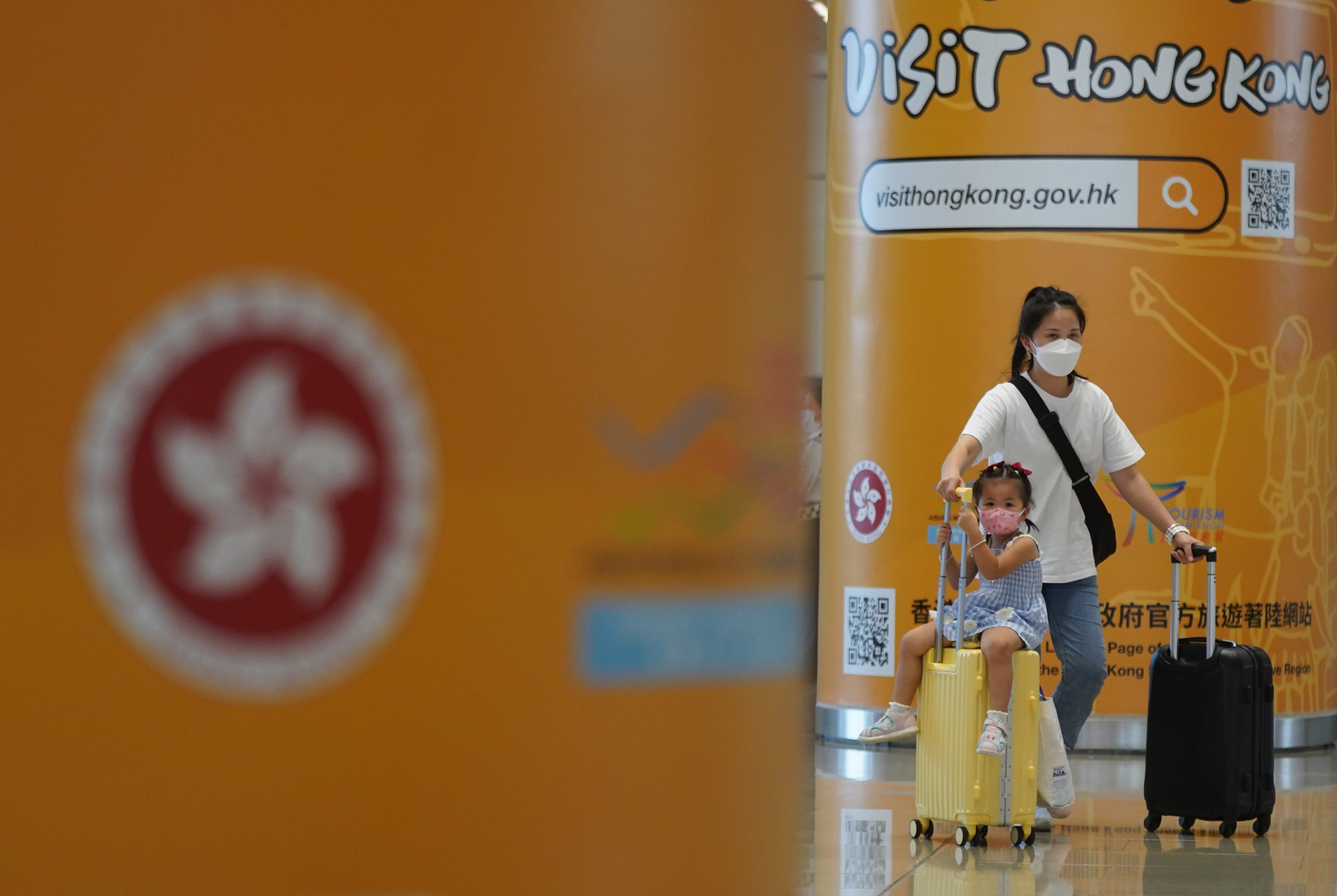
Hong Kong authorities to discuss PCR test requirements for children under 3 with mainland counterparts
- Children under three travelling to Hong Kong are not required to undergo testing but those travelling from the city to the mainland need to do a test
- Government-run community facilities have extended their throat swab testing services to children under the age of three
Hong Kong’s leader has said officials will discuss the inconsistent Covid-19 testing requirements for children under the age of three crossing the border from the city or mainland China.
The government on Tuesday clarified that children under the age of three travelling to Hong Kong were exempted from any pre-departure testing, while the requirement would be applied to those visiting the mainland.
“We will communicate with the mainland on the requirement to see if they have any considerations on the matter,” Chief Executive John Lee Ka-chiu said during his regular press briefing on Tuesday.
Quarantine-free travel between Hong Kong and the mainland resumed on January 8, 2023, with travellers from both sides required to undergo a polymerase chain reaction (PCR) test within 48 hours before departure, but those under three coming to the city from the mainland were exempted from the requirement.

Those heading to the mainland can use the self-paid testing services at government-run facilities where the price is capped at HK$150 (US$19), or private hospitals and labs approved by the authorities. Test samples must be collected via a throat or nasal swab or a combination of both.
The government on Monday said that community facilities would extend their throat swab testing services to children under the age of three from Tuesday.
Parents had earlier complained they were forced to pay for their children’s PCR tests at private facilities because community ones did not provide services to those younger than three and stool samples were not being accepted.
The collection of stool samples, often used for testing young children and those unsuited for respiratory specimen collection, has been suspended since January 4.
A source said children under the age of three had been exempted from any testing before arriving in Hong Kong since June last year.
He said that throat swab collection for children under the age of three would be conducted by nurses, while those younger than one would need to visit specific testing centres.
Dr Mike Kwan Yat-wah, a consultant at Princess Margaret’s paediatric infectious diseases unit, said that given Covid-19 was a respiratory disease, tests conducted with throat or nasal specimens would be more accurate than ones using stool samples.
“Children of any age, even newborns can undergo throat swabs,” Kwan said, adding it was usual practice for hospitals. “We have to do the swabs carefully and gently and ensure that we will not injure the children. Parents do not have to be worried.”
Frankie Ngan Man-yu, a lawmaker from the Democratic Alliance for the Betterment and Progress of Hong Kong, said parents of infants only a few months old had complained it was difficult for their children to undergo throat or nasal swabs, and urged the government to resume stool sample collection.
Meanwhile, city leader Lee said authorities would communicate with their mainland counterparts and local laboratories over using a common threshold for CT values.
Infected people with a high CT value have a lower viral load. Currently, hospitalised Covid-19 patients are viewed as non-infectious and can be discharged if their CT value is 30 or above.
Currently, a person with a CT value of 35 or higher is categorised as negative and allowed to enter the mainland or Macau, down slightly from the earlier 40. But some private laboratories in Hong Kong only deem test results with a CT value higher than 40 as negative.
Ricky Chiu Yin-to, whose company operates several testing centres, said his lab had maintained the threshold at 40 based on the guidelines written by the test supplier.
Depending on the brand of the test, different centres might use various CT values to define a result as negative, he noted
“If someone has a CT value of 36, there are two possibilities,” Chiu said. “One is that he is not infectious any more. Another one is that he has just been infected. His CT value may decrease from 36 today to around 20 tomorrow … It may become a fake negative if we draw the line at 35. ”
But government pandemic adviser Professor Ivan Hung Fan-ngai said the government could consider dropping pre-departure testing or replacing PCR tests with rapid antigen testing a few weeks later if border reopening had little impact on the healthcare system.


